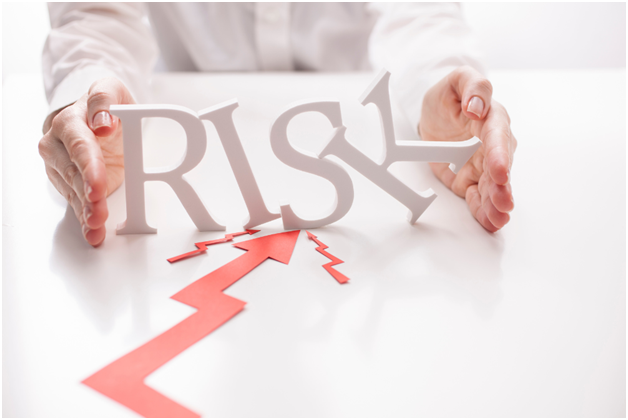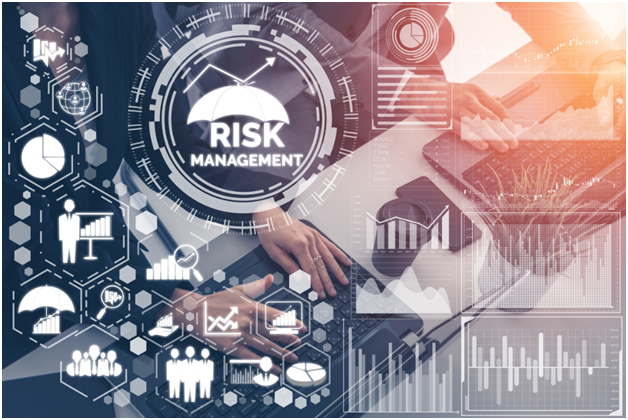
For any entrepreneur, the risk of failure is always present. However, there are ways to minimize that risk and continue moving toward your business goals. By understanding the most common risks and taking steps to mitigate them, you can put yourself in a much better position for success. In this blog post, we’ll explore some of the biggest risks for entrepreneurs and how to address them.

There are several business risks that entrepreneurs face when starting and running their businesses. A famous entrepreneur and author Brian Will writes in his book The Dropout Millionaire that:
“They tend to be stressed out most of the time because there are always problems. They come in the form of things like your employees, customers, the government, or your finances. Problems pop up daily”
These include financial risks, such as not having enough capital to sustain the business or losing money on investments; legal risks, such as being sued; and reputational risks, such as damaging one’s reputation in the business community.
Additionally, entrepreneurs may also face personal risks, such as burnout or stress. While these risks can be daunting, there are also several ways to mitigate them. For example, entrepreneurs can diversify their investments, purchase insurance, and build strong relationships with key stakeholders.
As an entrepreneur, you have to be ready to face any risks head-on. By taking steps to reduce the risks they face, entrepreneurs can increase their chances of success.
When you’re an entrepreneur, it’s easy to get caught up in the day-to-day grind and forget about the bigger picture. But if you want your business to be successful in the long run, it’s important to take a step back and assess the business risks you face as an entrepreneur. Here are 7 of the biggest risks entrepreneurs face and how you can mitigate them.

One of the biggest risks associated with entrepreneurship is financial risk. When starting a business, there is no guarantee of success, and all of the investment capital is at risk of being lost. Even established businesses can quickly fold if they are unable to generate enough revenue to cover their expenses. This financial insecurity can be stressful for entrepreneurs and their families, and it can lead to mental health problems and personal bankruptcy if the business fails.
In addition to the risk of losing money, entrepreneurs also face the prospect of sacrificing their time and energy with no guarantee of a payoff. For many people, the potential rewards of entrepreneurship outweigh the risks, but it is important to be aware of the risks before taking the plunge.
“You have a choice. You can either deal with it and move on with your business or if you can’t stand the heat, get out of the kitchen and quit. But complaining about it is a waste of your time and mine”
- Brian Will
When you’re starting a business, there’s no guarantee that it will be successful, which means you could end up losing a lot of money. To mitigate this risk, it’s important to have a solid financial plan and to make sure you’re not spending more money than you can afford to lose. It’s also a good idea to create a budget and stick to it as much as possible.
Another risk entrepreneurs face is time risk. This is the risk associated with spending time on something that may not produce results. For example, entrepreneurs often have to spend a lot of time networking and building relationships. This can be time-consuming and may not result in any immediate opportunities. Similarly, entrepreneurs may spend a lot of time developing a product or service, only to find that there is no market for it.
While time risk can be frustrating, it is important to remember that it is an inherent part of the entrepreneurial process. By being aware of this risk, you can be better prepared to deal with it when it arises. When you’re starting a business, it can take a lot of time and effort to get it off the ground. This can be a problem if you don’t have enough time to dedicate to your business or if you have other commitments that take up your time.
“In my life, I have learned that money is time. It’s not things”
- Brian Will
To mitigate this risk, it’s important to make sure you have enough time to dedicate to your business before you get started. It’s also a good idea to delegate tasks so you can focus on the most important aspects of your business.
Another risk entrepreneurs face is legal risk. This includes things like contracts, copyright law, and liability issues. To mitigate this risk, it’s important to consult with an attorney who specializes in small businesses. This way, you can be sure that all of your bases are covered and that you’re taking the necessary precautions to protect your business legally.
One of the risks that come with being an entrepreneur is reputational risk. This is the risk to a company’s reputation if something goes wrong. Many entrepreneurs are willing to take this risk because they believe in their company and their products or services.
However, there is always the possibility that something will happen that will damage the company’s reputation. This could be anything from a negative review to a scandal. If this happens, it can be very difficult to recover from. As an entrepreneur, you need to be aware of this risk and be prepared to deal with it if it does happen.
To mitigate this risk, it’s important to always be professional and ethical in your dealings with customers, partners, and employees. It’s also important to have a solid crisis management plan in place in case something goes wrong.

Any business owner will tell you that running a company is no easy task. From managing finances to overseeing day-to-day operations, there are a multitude of responsibilities to juggle. Perhaps one of the most challenging aspects of owning a business is marketing. To be successful, you must have a well-thought-out marketing strategy that resonates with your target audience and helps you to achieve a significant market share.
However, even the best marketing plans can fail, leaving businesses vulnerable to market risk. This type of risk is often difficult to predict or control, and it can have a major impact on a company’s bottom line. As such, entrepreneurs need to be aware of the risks associated with marketing before they embark on their business journey. Otherwise, they may find themselves in hot water when things don’t go as planned. To avoid these mistakes, we recommend you read Brian Will’s book “The Dropout Millionaire,” which will help you develop a successful business strategy.
One of the key risks that entrepreneurs face is a strategic risk. This is the risk that a chosen strategy will turn out to be the wrong one, resulting in a company struggling to meet its targets. Several factors can contribute to this, such as changes in the market or the business environment. As such, it is important for entrepreneurs to be aware of this risk and to have a contingency plan in place in case their chosen strategy does not pan out. While there is no surefire way to avoid strategic risks, being aware of them and taking steps to mitigate it can help to reduce the chances of a business failing due to an outdated or unsuitable strategy.
Being an entrepreneur is not for the faint of heart. It takes a significant amount of courage, determination, and hard work to be successful. However, there are also several risks associated with entrepreneurship, one of which is cash flow problems. Cash flow refers to the movement of money in and out of a business. A business needs cash to pay for expenses such as rent, materials, and employee salaries. If a business does not have sufficient cash on hand, it may be unable to meet its financial obligations, which can lead to financial ruin.
“Having cash is more important than paying off debt at the beginning of operating your business”
- Brian Will
Many businesses fail because they are unable to manage their cash flow effectively. As an entrepreneur, it is important to be aware of the risks associated with your business and take steps to mitigate them. Make sure you know how much cash you have coming in and going out each month, and always keep a cushion on hand in case of unexpected expenses. One way to reduce the risk of cash flow problems is to maintain a healthy emergency fund that can be used to cover unexpected expenses. By doing so, you can protect your business from the financial devastation that can occur if cash flow problems are not adequately managed.
“He Who Holds the Gold…Rules”
- Brian Will

Many entrepreneurs are risk-takers by nature. They see opportunities where others see obstacles and they’re willing to take chances to achieve their goals. However, taking all the risks can be a double-edged sword. While a calculated risk can lead to a big payoff, an impulsive one can lead to disaster. That’s why entrepreneurs need to know how to assess risk before taking the plunge.
Here are 5 tips to help you assess risk like a pro:
Before you can assess whether a particular course of action is risky or not, you need to have a clear understanding of your goals. What are you trying to achieve? What are your long-term objectives? Once you have a good sense of your goals, you can start to weigh the potential risks and rewards of each decision in light of those goals.
It’s important to know your limitations when it comes to taking risks. Are you the type of person who can handle a little bit of uncertainty? Or do you prefer to play it safe? There’s no right or wrong answer here; it all depends on your personality and preferences. However, it is important to be honest with yourself so that you don’t bite off more than you can chew.
Every decision comes with consequences, both good and bad. When assessing risk, it’s important to think about both the positive and negative outcomes that could result from your actions. For example, if you’re considering starting your own business, what are some of the potential risks? You could lose money, fail miserably, or end up working long hours with little free time. On the other hand, you could also make a lot of money, gain independence, and build something you’re proud of. Weighing the pros and cons will help you make a more informed decision.
Before making any major decisions, you must do your research and gather as much information as possible. Talk to people who have been in similar situations, read articles and books on the topic, and get advice from experts if necessary. The more prepared you are, the better equipped you’ll be to handle whatever comes your way—and the less risky your decision will seem.
No matter how well you plan or how much research you do, there’s always a chance that things will go wrong—that’s just part of life! That’s why it’s important to have a contingency plan in place in case things don’t go according to plan. Having a Plan B will help reduce stress and give you peace of mind knowing that there’s a backup plan if needed.
As an entrepreneur, you are constantly faced with risks. Some of these risks are unavoidable, but there are steps you can take to minimize your exposure. Here are four tips to help you reduce your risk exposure as an entrepreneur.
One of the best ways to reduce your risk exposure is to diversify your income streams. This means having multiple sources of revenue instead of just one. For example, if you are a freelance writer, you can diversify your income streams by also offering consulting services or teaching online courses. This way, if one stream dries up, you will still have others to fall back on.
Another way to reduce your risk exposure is to get insurance. There are a variety of insurance policies available that can protect you from liability if something goes wrong with your business. For example, if you have a product-based business, you may want to consider getting product liability insurance. This will protect you if someone is injured by one of your products.
A contingency plan is a must for any business owner. This is a plan of action that you can take if something unexpected happens, such as a natural disaster or sudden economic downturn. Having a contingency plan in place will help you minimize the impact of these events on your business and maintain operations until things return to normal.
Finally, it is important to manage your cash flow carefully. This means having enough money on hand to cover unexpected expenses and maintain operations if revenue decreases. One way to do this is to establish a line of credit with a bank or other financial institution. This way, if you need extra cash, it will be available when you need it most. By following these tips, you can reduce your risk exposure as an entrepreneur and give yourself peace of mind knowing that you have taken steps to protect your business.

Entrepreneurship is inherently risky. But there are steps you can take to minimize many risks you face like financial statements and give your business the best chance for success. In this blog post, we’ll explore some of the resources available to help entrepreneurs mitigate risk.
One of the most important things you can do to mitigate risk is to create a detailed business plan. Your business plan should outline your business goals, strategies for achieving those goals, and contingency plans for dealing with unforeseen challenges. A well-crafted business plan will help you make sound decisions, attract investors, and gain the support of your team.
Another key way to reduce risk is to diversify your income sources. Don’t put all your eggs in one proverbial basket. Consider multiple revenue streams, such as advertising, product sales, affiliate commissions, and so on. This will insulate you from financial shocks and help ensure that your business can weather any storm. Finally, be sure to build a strong team of advisers, mentors, and supporters. These individuals can provide valuable insights, advice, and assistance when you need it most. Surrounding yourself with a positive and supportive network will help you navigate challenging times and make better decisions for your business.
As an entrepreneur, you are constantly faced with risks. Whether it’s the risk of failing to meet customer expectations, the risk of your product not being good enough, or the risk of your entire business failing, there are always going to be risks present. And while some risks are worth taking, others can be avoided altogether with a well-thought-out risk management plan. Here are four reasons why every entrepreneur needs a risk management plan.
“Owners tend to be stressed out most of the time because there are always problems”
– Brian Will
When you’re first starting, every penny counts. So, why take unnecessary risks that could put your business in jeopardy? By identifying and assessing the risks your business faces, you can develop strategies to avoid them altogether. This can help you save money that can be better spent on other areas of your business.
In addition to helping you avoid risks, a risk management plan can also help you identify opportunities. By taking a step back and looking at your business from a different perspective, you may be able to see opportunities that you wouldn’t have otherwise noticed. Identifying these opportunities can help you grow your business and achieve success.
When you have a plan in place for managing risks, you’ll be able to make better decisions when faced with difficult choices. This is because you’ll have a clear understanding of the risks involved and what could happen if you make a certain decision. With this knowledge, you can make educated decisions that are in the best interest of your business.
As an entrepreneur, it’s natural to worry about the risks your business faces. But having a risk management plan in place can help put your mind at ease knowing that you have a solid plan for dealing with any potential problems that could come up. This peace of mind can allow you to focus on other aspects of your business and achieve greater success.
Being an entrepreneur is a risky business. If you’re not careful, you could lose everything you’ve put into your company. But, by taking the time to assess the risks involved in your business venture and put together a risk management plan, you can significantly reduce your risk exposure. For more information on managing risk as an entrepreneur, we recommend reading Brian Will’s book “The Dropout Millionaire”. In it, he outlines his own experience with failure and what he did to turn his life around. Thanks for reading! We hope this article has helped you get a better handle on how to manage the risks associated with being an entrepreneur.
 Copyright © 2023 – 2024 Brian Will Media. All Rights Reserved.
Copyright © 2023 – 2024 Brian Will Media. All Rights Reserved.